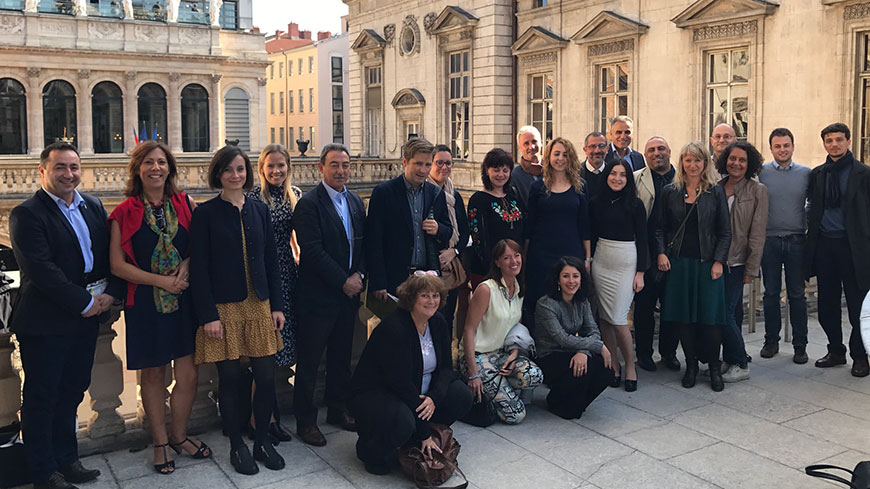Intercultural cities’ policies aim to ensure the conditions that enable individuals and groups to live together in their diversity, by promoting opportunities and positive interactions which build trust and break down divides. However, Europe is more than ever divided about the key principles of migrant and refugee integration, particularly following a series of terrorist attacks that have – in some cases - fuelled authoritarian populist speech and triggered greater restrictions of fundamental freedoms on security grounds. In this context, Intercultural cities have to juggle with the constraints related to securing the territory and the need to open up the public space to facilitate interaction between communities. In order to learn from each other’s experiences, the cities member of the ICC network decided to engage in a study visit to discuss the prevention of violent extremism and radicalisation.
The study visit took place on 18 and 19 October in Lyon, and aimed at showcasing the city’s approach to current dilemmas, and bring examples of how the intercultural integration approach, through education, culture, mediation and conflict prevention, can help mitigating growing fears of terrorism and radicalisation. It also stimulated a reflection on the role that the actors of the local level in intercultural cities can play in preventing violent extremism and long-term radicalisation. Among the conclusions, the participants highlighted the following main principles:
- Public policies that aim to prevent radicalisation must be planned on the medium and long term and, as far as possible, shared and supported across political divides. The intercultural approach and the valorisation of diversity applied to the city's management policies seem to be effective tools for carrying out upstream work on the prevention of radicalization;
- Combating radicalisation and violent extremism requires close and coordinated collaboration between all concerned actors, at all levels of governance (local, regional and national) and with the civil society working on the ground. Education and training of public service professionals on intercultural competence can certainly promote a more coherent work around a common goal.
- Actions to prevent radicalisation and violent extremism must ensure that the root-causes (often social) that make a certain part of society vulnerable to radicalization are addressed, not just the ideologies.
- Public policies must promote the development of healthy, strong and uncomplexed identity(ies) among young people in order to prevent isolation, lack of sense of belonging, marginalisation and identitarian closure that provide fertile ground for radicalization. To this end, States and local authorities should promote a positive image of diversity in all sectors, including in the public and cultural spheres.
- Social and ethnic mixing must be pursued in spatial planning policies, as well as in social housing and access to education. Social inclusion policies should be conceived, understood and developed as policies “Pro/For” (inclusion, welfare, peace, development etc.) rather than as policies "Against" (radicalisation, extremism, etc.). This would make it possible to reach out to the population as a whole and stimulate the participation of all - without suspicion or mistrust - in the construction of societies where it is possible to live well in diversity.
More information:
- Draft Agenda
- Report of the study visit
- Council of Europe PACE Report on “Preventing the radicalisation of children by fighting the root causes”
- The fight against violent extremism and radicalisation leading to terrorism - Action Plan 2015-2017
- Guidelines for prison and probation services regarding radicalisation and violent extremism
- Handbook for Prison and Probation Services regarding Radicalisation and Violent Extremism
- Congress of Local and Regional Authorities “Guidelines on preventing radicalisation and manifestations of hate at the grassroots level” adopted in October 2015
- North South Center Lisbon Forum 2015 “How to combat radicalisation and terrorism: prevention tools and shared knowledge in the Mediterranean and European Space”, 3-4 December 2015
- Website of the French Ministry of Education on the prevention of radicalisation in schools




